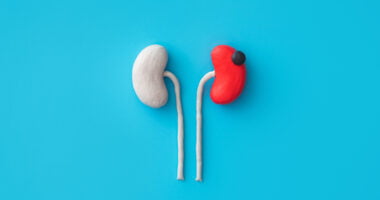Wound healing is a natural process that occurs when the body repairs itself after injury or trauma. While there are traditional treatments available to promote wound healing, there are also many natural remedies that can help speed up the healing process. In this article, we’ll explore 26 natural things that can help promote wound healing.
Natural Remedies: 26 Natural Things That Can Help Promote Wound Healing Fast
1. Aloe Vera
Aloe Vera has been found to be effective in promoting wound healing. Aloe Vera gel contains several compounds that can aid in the healing process. Firstly, it has anti-inflammatory properties that can help reduce inflammation in the wound. Inflammation is a natural response to injury or trauma, but excessive inflammation can slow down the healing process. By reducing inflammation, Aloe Vera can help speed up the healing process.
Secondly, Aloe Vera has been found to have antimicrobial properties, which means it can help prevent infections in the wound. This is important for promoting healing, as infections can slow down the healing process.
Additionally, Aloe Vera has been shown to promote the growth of new tissue, which is essential for wound healing. It contains compounds that can help stimulate the production of collagen, a protein that is important for skin health and wound healing.
Furthermore, Aloe Vera has a high water content, which can help keep the wound moist and prevent it from drying out. This can help create an optimal environment for wound healing, as it can help prevent the formation of scabs, which can impede the healing process.
Applying aloe vera gel to the wound site can help reduce inflammation and promote healing.[1]
2. Honey
Honey has several properties that make it an effective natural remedy for promoting wound healing. Firstly, honey has antimicrobial properties, which means it can help prevent infections in the wound. This is due to the presence of hydrogen peroxide, which is released when honey comes in contact with bodily fluids. This helps kill bacteria and other microorganisms that can slow down the healing process.
Secondly, honey has anti-inflammatory properties, which can help reduce inflammation in the wound. Inflammation is a natural response to injury or trauma, but excessive inflammation can slow down the healing process. By reducing inflammation, honey can help speed up the healing process.
Additionally, honey has been shown to have a positive effect on the growth of new tissue, which is essential for wound healing. It contains natural sugars that can help promote cell growth and proliferation, as well as antioxidants that can help protect the new tissue from damage.
Finally, honey has a high viscosity, which means it can help keep the wound moist and prevent it from drying out. This can help create an optimal environment for wound healing, as it can help prevent the formation of scabs, which can impede the healing process.[2, 3 ]
3. Turmeric
Turmeric has anti-inflammatory and antioxidant properties that can help reduce inflammation and promote healing. Adding turmeric to your diet or applying a turmeric paste to the wound site can help speed up the healing process. [4, 5]
4. Echinacea
Echinacea is a natural remedy that has been used for centuries to promote wound healing. It has antibacterial and anti-inflammatory properties that can help reduce the risk of infection and promote healing. [6, 7]
5. Coconut Oil
Coconut oil is known for its moisturizing properties, which make it an excellent natural remedy for wound healing. Applying coconut oil to the wound site can help keep the skin moisturized and promote healing. [8]
6. Calendula
Calendula is a natural remedy that has been used for centuries to promote wound healing. It has anti-inflammatory and antibacterial properties that can help reduce inflammation and prevent infection. [9]
7. Tea Tree Oil
Tea tree oil is known for its antiseptic properties, which make it an excellent natural remedy for wound healing. Applying tea tree oil to the wound site can help reduce the risk of infection and promote healing. [10]
8. Garlic
Garlic has several properties that can help promote wound healing. Firstly, it has antibacterial properties, which means it can help prevent infection in the wound. Infections can slow down the healing process, so preventing them is important for promoting healing.
Secondly, garlic has anti-inflammatory properties, which can help reduce inflammation in the wound. Inflammation is a natural response to injury or trauma, but excessive inflammation can slow down the healing process. By reducing inflammation, garlic can help speed up the healing process.
Finally, garlic contains several compounds that can help stimulate blood flow to the wound site. This increased blood flow can help deliver essential nutrients and oxygen to the wound, which are important for promoting healing. Additionally, increased blood flow can help remove waste products from the wound, which can also help promote healing. [11]
9. Lavender Oil
Lavender oil has antimicrobial and anti-inflammatory properties that can help reduce the risk of infection and promote healing. Applying lavender oil to the wound site can help speed up the healing process. [12]
10. Comfrey
Comfrey is a natural remedy that has been used for centuries to promote wound healing. It has anti-inflammatory properties that can help reduce swelling and promote healing. A report shows that wound healing time was significantly shorter after the topical application of a comfrey ointment. [13]
11. Arnica
Arnica is a natural remedy that has been used for centuries to promote wound healing. It has anti-inflammatory and pain-relieving properties that can help reduce inflammation and promote healing. [14]
12. Zinc
Zinc is an essential mineral that plays a crucial role in wound healing. It helps to promote the growth of new tissue and reduce inflammation. Eating foods rich in zinc, such as oysters, beef, and spinach, or taking a zinc supplement can help promote wound healing. [15]
13. Vitamin C
Vitamin C is an essential nutrient that plays a crucial role in wound healing. It helps to promote the growth of new tissue and collagen production. Eating foods rich in vitamin C, such as citrus fruits, strawberries, and broccoli, or taking a vitamin C supplement can help promote wound healing. [16]
14. Vitamin E
Vitamin E is an essential nutrient that plays a crucial role in wound healing. It helps to reduce inflammation and promote the growth of new tissue. Eating foods rich in vitamin E, such as almonds, spinach, and sunflower seeds, or taking a vitamin E supplement can help promote wound healing. [17]
15. Vitamin K
Vitamin K is an essential nutrient that plays a crucial role in blood clotting and wound healing. Eating foods rich in vitamin K, such as leafy green vegetables, can help promote wound healing. [18]
16. Omega-3 Fatty Acids
Omega-3 fatty acids are essential nutrients that play a crucial role in wound healing. They help to reduce inflammation and promote the growth of new tissue. Eating foods rich in omega-3 fatty acids, such as salmon, tuna, and walnuts, or taking an omega-3 supplement can help promote wound healing. [19]
17. Green Tea
Green tea has anti-inflammatory and antioxidant properties that can help reduce inflammation and promote healing. Drinking green tea or applying it to the wound site can help speed up the healing process. [20]
18. Chamomile
Chamomile has anti-inflammatory and antibacterial properties that can help reduce inflammation and prevent infection. Applying chamomile tea or oil to the wound site can help promote healing. [21]
19. Witch Hazel
Witch hazel has astringent and anti-inflammatory properties that can help reduce inflammation and promote healing. Applying witch hazel to the wound site can help speed up the healing process. [22]
20. Yarrow
Yarrow has anti-inflammatory, antimicrobial and astringent properties that can help reduce inflammation and promote healing. What the astringent properties do is help constrict the blood vessels in the wound area. This can help reduce bleeding and promote clotting, which are important for wound healing.
Additionally, yarrow has been shown to have a positive effect on the growth of new tissue, which is essential for wound healing. It contains several compounds that can help stimulate cell growth and proliferation, including flavonoids and terpenes. Applying yarrow oil or salve to the wound site can help speed up the healing process. [23]
21. Plantain
Plantain has anti-inflammatory and antibacterial properties that can help reduce inflammation and prevent infection. Applying plantain to the wound site can help promote healing. [24]
22. Gotu Kola
Gotu kola has anti-inflammatory and antioxidant properties that can help reduce inflammation and promote healing. Applying gotu kola cream or oil to the wound site can help speed up the healing process. [25]
23. Sage
Sage has antimicrobial and anti-inflammatory properties that can help reduce the risk of infection and promote healing. Applying sage tea or oil to the wound site can help speed up the healing process. [26]
24. Cinnamon
Cinnamon has antimicrobial and anti-inflammatory properties that can help reduce the risk of infection and promote healing. Applying cinnamon oil or powder to the wound site can help promote healing. [27]
25. Water
Water is an essential element for promoting wound healing. It plays a crucial role in maintaining the proper environment for wound healing. Therefore, Staying hydrated is important for promoting wound healing. Drinking enough water can help keep the body hydrated, clean and Moisturize the wound, regulate body temperature and promote healthy blood flow to the wound area. [28]
26. Onion
Onion contains anti-inflammatory and antimicrobial compounds that can help reduce swelling, inflammation, and fight off bacteria and other pathogens that can cause infection in the wound. Additionally, onion is rich in vitamin C, which is essential for collagen production, a protein that helps build new tissue and repair damaged tissue. Onion extract has also been shown to reduce the formation of scar tissue, minimizing scarring and promoting better healing. Better blood circulation is another benefit of onion, which helps to bring more oxygen and nutrients to the wound site, promoting faster healing. Overall, applying onion juice or paste to a wound can be a natural and effective way to promote wound healing.
In conclusion, there are many natural remedies that can help promote wound healing. From aloe vera to turmeric, these remedies have been used for centuries to speed up the healing process and prevent infection. Incorporating these natural remedies into your wound care routine can help you heal faster and more effectively. [29]
FAQs
A: Natural remedies can be effective in promoting wound healing, but it’s important to consult with a healthcare professional before relying solely on natural remedies. Depending on the severity of the wound, traditional treatments may be necessary.
A: Yes, natural remedies can be used in conjunction with traditional wound care treatments. Consult with a healthcare professional before incorporating any new remedies into your wound care routine.
A: Some natural remedies, such as garlic and cayenne pepper, may actually irritate the wound and delay healing. It’s important to research and consult with a healthcare professional before using any new remedy.
A: Some natural remedies may be more effective for certain types of wounds than others. It’s important to research and consult with a healthcare professional before using any new remedy.
A: The time it takes for natural remedies to work for wound healing can vary depending on the severity of the wound and the type of remedy used. It’s important to be patient and consistent with your wound care routine.









